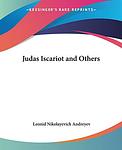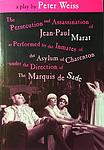The Greatest Russian, German "Plays, Fiction" Books Since 1900
Click to learn how this list is calculated.
This list represents a comprehensive and trusted collection of the greatest books. Developed through a specialized algorithm, it brings together 300 'best of' book lists to form a definitive guide to the world's most acclaimed books. For those interested in how these books are chosen, additional details can be found on the rankings page.
Genres
Plays are a category of literature that consists of written works intended for performance on stage. They typically feature dialogue between characters and are structured into acts and scenes. Plays can be comedic, tragic, or a combination of both, and often explore themes such as love, power, and morality. They are meant to be performed by actors in front of an audience, and can be enjoyed both as written works and as live performances.
Countries
Date Range
Reading Statistics
Click the button below to see how many of these books you've read!
Download
If you're interested in downloading this list as a CSV file for use in a spreadsheet application, you can easily do so by clicking the button below. Please note that to ensure a manageable file size and faster download, the CSV will include details for only the first 500 books.
Download-
1. The Cherry Orchard by Anton Chekhov
"The Cherry Orchard" is a classic play about an aristocratic Russian woman and her family as they return to their family estate, which includes a large and well-known cherry orchard. The family is on the brink of financial ruin and the estate is slated to be auctioned off. Despite various attempts to save their beloved home and orchard, they are ultimately unable to prevent the sale. The play is a poignant reflection on the changing social order and the decline of the aristocracy in Russia at the turn of the 20th century.
-
2. Three Sisters by Anton Chekhov
"Three Sisters" is a play that revolves around the lives of three sisters, Olga, Masha, and Irina, who live in a provincial Russian town and yearn for their former life in Moscow. The story explores their relationships, dreams, and disappointments, as well as their interactions with the military officers stationed nearby. The narrative is a poignant exploration of love, loss, and the relentless passage of time, highlighting the human struggle for meaning and happiness.
-
3. Mother Courage and Her Children by Bertolt Brecht
Set against the backdrop of the Thirty Years' War, the book tells the story of a canteen woman, Mother Courage, who pulls her cart with her three children across war-torn Europe. It explores her struggles and survival tactics as she tries to profit from the war while keeping her children safe. The narrative is a profound critique of war and its consequences, highlighting the human cost of conflict and the often futile search for prosperity and security in a chaotic world.
-
4. The Resistible Rise of Arturo Ui by Bertolt Brecht
"The Resistible Rise of Arturo Ui" is a satirical play that uses the rise of a fictional 1930s Chicago mobster, Arturo Ui, to parallel the rise of Adolf Hitler in Nazi Germany. The narrative is a critique of those who allowed Hitler to come to power, emphasizing that his rise was indeed resistible. The play explores themes of power, corruption, manipulation, and the dangers of complacency, showcasing the destructive potential of unchecked ambition and the failure of society to prevent the ascent of dangerous individuals.
-
5. Galileo by Bertolt Brecht
This play delves into the life of the renowned Italian scientist, Galileo Galilei, who challenged the church's belief in a geocentric universe. It explores his struggles against the Catholic Church, his recantation, and the consequences of his actions on his life and those around him. The narrative also examines the conflict between science and religion, the ethics of scientific discovery, and the price of truth.
-
6. The Caucasian Chalk Circle by Bertolt Brecht
The play is a parable set in the Soviet Union that explores themes of justice, class struggle, and morality through the story of Grusha, a servant girl who risks her life to protect an abandoned child of noble birth during a time of revolution. As the child grows, a dispute over his custody arises, leading to a trial presided over by a wily, unconventional judge named Azdak. The trial's resolution hinges on the titular chalk circle test, which ultimately reveals the true nature of parental love and the importance of putting the needs of the child first. The narrative is a commentary on the social and political issues of the time, advocating for a society that prioritizes the welfare of its most vulnerable members.
-
7. The Lower Depths by Maxim Gorky
The book is a stark depiction of the lives of the impoverished and dispossessed at the bottom of the Russian social ladder in the early 20th century. Set in a squalid shelter, it presents a group of destitute individuals from various backgrounds—thieves, prostitutes, and the down-and-out—who share their stories and philosophies as they grapple with the harsh realities of poverty and survival. The narrative delves into themes of human suffering, the struggle for dignity, and the elusive nature of truth, offering a grim commentary on the social conditions of the time and the human condition itself.
-
8. The Good Person of Szechwan by Bertolt Brecht
"The Good Person of Szechwan" is a parable play that explores the difficulty of maintaining one's morals and goodness in a corrupt and exploitative world. The story revolves around a kind-hearted prostitute who struggles to be a good person under the harsh realities of life in Szechwan. When three gods visit the city in search of a good person, they find only her willing to help them. However, to survive, she must adopt a ruthless alter ego, leading to a complex exploration of morality, identity, and societal pressures.
-
9. Judas Iscariot by Leonid Andreyev
The book presents a reimagining of the character of Judas Iscariot, traditionally known as the betrayer of Jesus Christ. It delves into the psychological and moral complexities of Judas, exploring his inner turmoil, motivations, and the factors that may have led him to commit the act of betrayal. The narrative seeks to humanize Judas, offering a nuanced perspective that challenges the conventional vilification he has received throughout history. Through this character study, the book examines themes of guilt, redemption, and the nature of evil, ultimately raising questions about free will and the role of individuals within the grander schemes of destiny and divine plans.
-
10. Marat Sade by Peter Weiss
The play is a dramatic exploration of power, class struggle, and human suffering set within the confines of an insane asylum in 1808 France. It depicts the Marquis de Sade as an inmate directing his fellow patients in a play about the assassination of Jean-Paul Marat, a radical journalist and politician during the French Revolution. The work delves into the philosophical and political debates between Sade and Marat, representing differing views on revolution, freedom, and the nature of humanity. As the inmates perform, the line between performance and reality blurs, creating a provocative and chaotic theater experience that challenges the audience's perception of madness and reason.
-
11. The Threepenny Opera by Bertolt Brecht
Set in Victorian London, the narrative revolves around a cunning antihero who leads a group of beggars and is involved in various criminal activities. He marries the daughter of the king of the beggars, only to be betrayed by his new wife and a former lover, which leads to his arrest. As he faces execution, a deus ex machina twist saves him at the last moment, allowing him to return to his life of crime. The work is a biting satire of capitalist society, showcasing the corruption and moral ambiguity that pervade all levels of society, from the lowly beggar to the esteemed official, all underscored by memorable music that adds a layer of irony to the darkly comedic plot.
-
12. The Major Plays by Anton Chekhov
This collection brings together the most significant works of a master playwright whose stories unfold against the backdrop of Russian society at the turn of the 20th century. The plays are rich with complex characters, nuanced relationships, and social commentary, exploring themes of unrequited love, dreams versus reality, the passage of time, and the search for meaning in everyday life. The playwright's signature blend of tragedy and comedy, combined with a subtle use of symbolism and a focus on character development, has cemented these works as timeless explorations of human nature and the societal pressures that shape our lives.
-
13. Mr Puntila And His Man Matti by Bertolt Brecht
The play centers around the dual nature of the wealthy landowner, Mr. Puntila, who oscillates between a cruel and exploitative capitalist when sober and a generous, friendly man when drunk. His complex relationship with his shrewd chauffeur, Matti, serves as a vehicle to explore themes of class struggle, the contradictions within human nature, and the social dynamics of power. Throughout the narrative, Puntila's erratic behavior affects his daughter's marriage prospects and highlights the absurdities and injustices of the class system, while Matti's practical wisdom and cunning expose the farcical elements of his employer's actions, ultimately leading to a satirical examination of the societal norms of the time.
Reading Statistics
Click the button below to see how many of these books you've read!
Download
If you're interested in downloading this list as a CSV file for use in a spreadsheet application, you can easily do so by clicking the button below. Please note that to ensure a manageable file size and faster download, the CSV will include details for only the first 500 books.
Download











